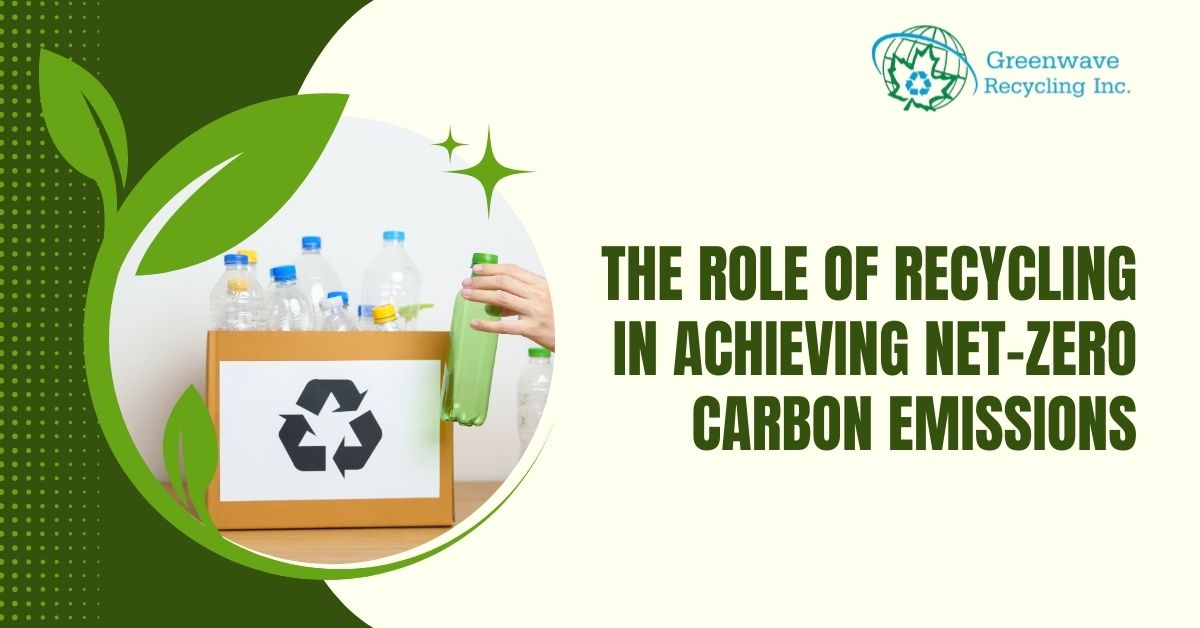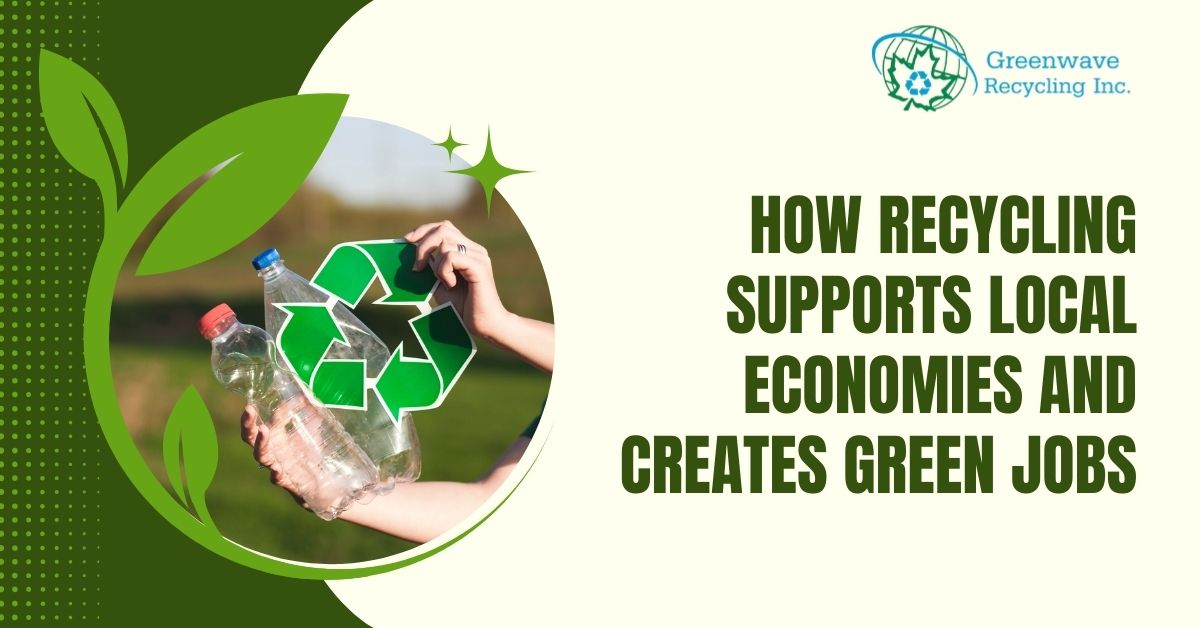Plastic waste is a growing global crisis with devastating environmental, economic, and health impacts. While…

As the world shifts toward sustainability, achieving net-zero carbon emissions has become a global priority. Governments, businesses, and individuals are taking action to reduce their carbon footprints, and recycling plays a crucial role in this mission. By cutting waste, lowering energy consumption, and reducing greenhouse gas emissions, recycling contributes significantly to carbon neutrality.
What is Net-Zero Carbon Emissions?
Net-zero carbon emissions refer to a balance between the amount of greenhouse gases emitted and the amount removed from the atmosphere. This can be achieved by reducing emissions and using carbon offset strategies such as renewable energy and sustainable waste management.
How Recycling Reduces Carbon Emissions
1. Decreasing Energy Consumption
Manufacturing products from raw materials requires significant energy. Recycling reduces the need for virgin materials, leading to lower energy use and fewer emissions. For example:
- Recycling aluminum saves up to 95% of the energy needed to produce new aluminum.
- Recycling plastic saves up to 87% of the energy required to make new plastic.
Less energy consumption means fewer fossil fuels burned, which directly lowers carbon emissions.
2. Reducing Landfill Waste and Methane Emissions
When organic waste and certain plastics break down in landfills, they release methane, a greenhouse gas 25 times more potent than carbon dioxide. Recycling diverts waste from landfills, reducing methane emissions and helping to fight climate change.
3. Cutting Industrial Carbon Footprints
Industries that rely on recycled materials instead of virgin resources produce significantly fewer carbon emissions. For instance, recycling:
- Paper lowers emissions by up to 40% compared to new paper production.
- Steel and glass production using recycled materials reduces emissions by over 50%.
These reductions support industries in achieving their net-zero goals.
The Role of Businesses in Net-Zero Goals Through Recycling
Many businesses are adopting sustainable waste management practices to align with global net-zero targets. By incorporating recycling programs, companies can:
- Reduce operational emissions.
- Meet corporate sustainability goals.
- Improve brand reputation and attract eco-conscious customers.
How Individuals Can Contribute to Net-Zero Through Recycling
- Properly Sort Recyclables: Ensure materials like plastic, glass, and paper are recycled correctly to prevent contamination.
- Support Eco-Friendly Brands: Choose companies that use recycled materials and have sustainable packaging.
- Reduce Single-Use Plastics: Opt for reusable products to minimize waste generation.
Conclusion
Recycling is a powerful tool in the fight against climate change and a key driver in achieving net-zero carbon emissions. By lowering energy consumption, reducing landfill waste, and supporting sustainable industries, recycling helps create a cleaner, greener future. Join the movement—start recycling today and contribute to a carbon-neutral world!

